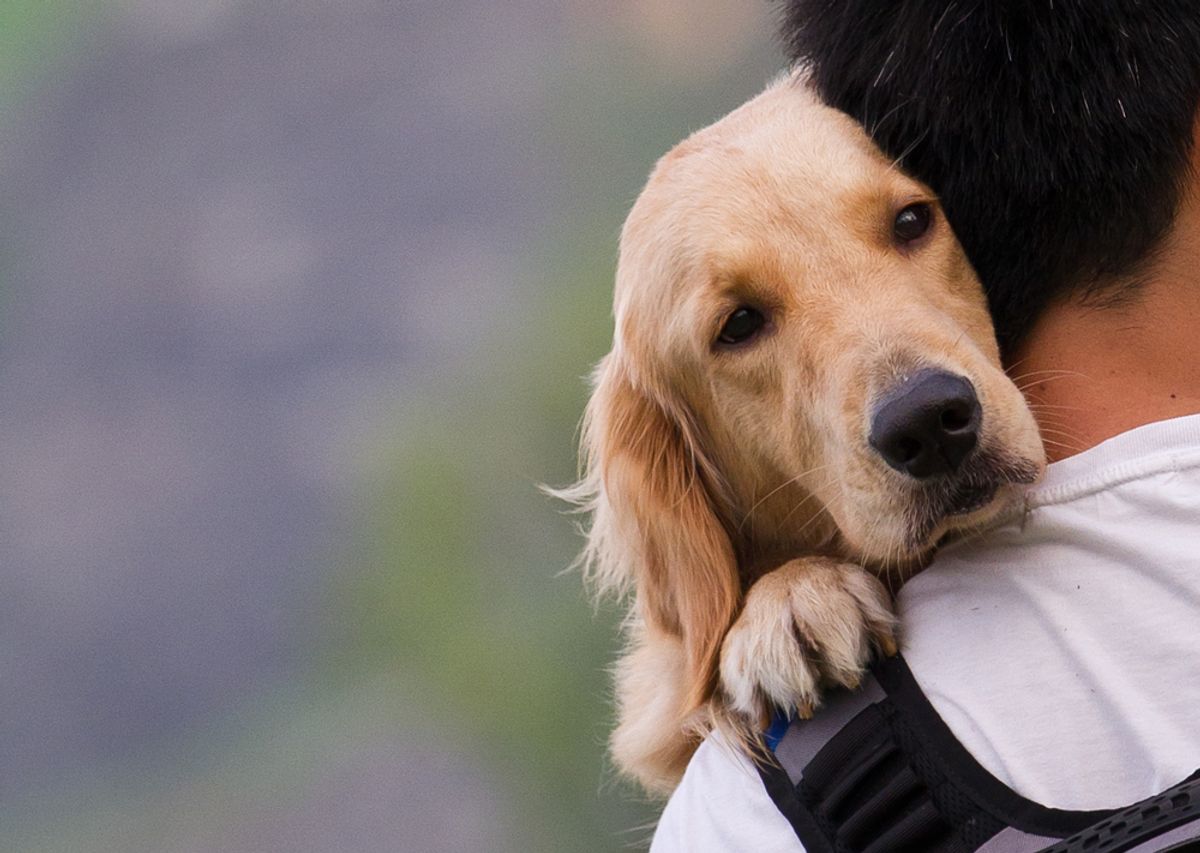A PLOS ONE study recently confirmed what many of us already knew: dog love can be extremely similar to maternal love.
"Alloparenting," or adopting and caring for different species-- has occurred for tens of thousands of years (the first domesticated dog dates back to 32,000 years ago). Around two-thirds of American households have pets and spend over $50 billion every year on their well-being.
In this study, researchers from Massachusetts General Hospital sought to directly compare the "functional neuroanatomy of the human-pet bond with that of the maternal-child bond." To do so, they had women look at photos of their babies and their dogs, as well as babies and dogs that they didn't know.
"There was a common network of brain regions involved in emotion, reward, affiliation, visual processing and social cognition when mothers viewed images of both their child and dog," reads the study. The unfamiliar photos didn't provoke the same reaction.
The Washington Post's Rachel Feltman reports:
But brain response to children and dogs wasn't entirely the same: An area of the brain vital to processing faces was activated more by a dog picture than a child's face, while parts of the midbrain were more active in response to children. It may be that facial cues are more important in human-to-dog communication, given our lack of common language. And the midbrain areas could be vital in forming human-to-human pair b0nds, National Geographic reports.
Although more research needs to be done to replicate the findings, it does make sense that we should have such important bonds with our pets.
"Pets hold a special place in many people's hearts and lives, and there is compelling evidence from clinical and laboratory studies that interacting with pets can be beneficial to the physical, social and emotional wellbeing of humans," said Lori Palley, DVM, of the MGH Center for Comparative Medicine and co-lead author of the report. "Several previous studies have found that levels of neurohormones like oxytocin – which is involved in pair-bonding and maternal attachment – rise after interaction with pets, and new brain imaging technologies are helping us begin to understand the neurobiological basis of the relationship, which is exciting."

Shares